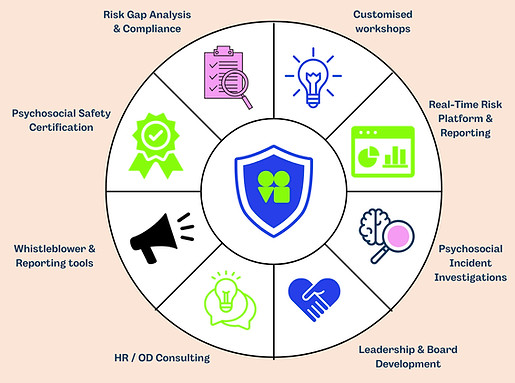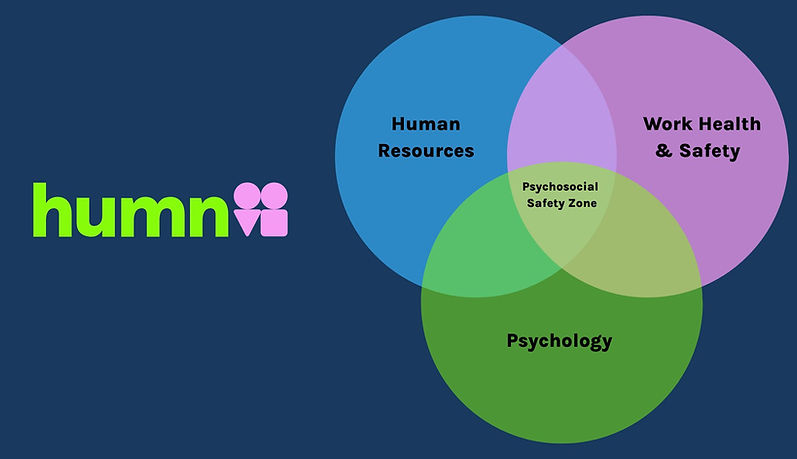Minimise Risk. Maximise Human
Bespoke high impact programs that transform leaders and teams into champions of psychosocial safety.
Clear. Practical. Unforgettable.
LEAD
Develop capable leaders. Strengthen safety and trust.
THRIVE
Build a culture where people and performance thrive.
Decode complexity, close gaps, shape culture.
No Fluff, just expert advice that WORKS!
Close compliance gaps, manage risk and build psychosocial safety culture and genuine wellbeing.
CERTIFY
Demonstrate compliance.
Earn trust through action.
Independent, evidence-backed.
Humn Certification that shows the world your workplace is built for people and fit for the future.
For People. For Progress. With Humn.

Global Expertise.
Evidence-based Standards.
Our Founders bring deep lived experience.
We know what works, what regulators expect and what leadership looks like.
A complete Psychosocial Safety System from Boardroom to Frontline. We don't just consult - we certify, educate, enable and embed psychosocial safety into the DNA of your organisation.
The Future of Psychosocial Safety
The Humn Ecosystem wraps expert advice, practical tools and real support around your people.
We don't do generic, we do what works.
Humn brings everything together: Leadership Development, Risk Strategy, Culture Change and Certification.
No Silos. No Fluff. Backed by data and built for people.

Be part of a movement helping organisations embed
psychosocial safety and meet their duty of care.
Independent.
No Hidden Agendas.
Rigour and Heart.
Proven.
Evidence Driven.
Built by Experts.
Practical.
Straight Talking.
Change that sticks.
Human.
Real Conversations.
Built for People.




.png)
Humn Clients















